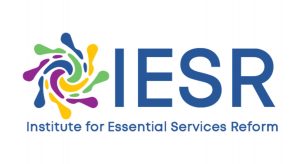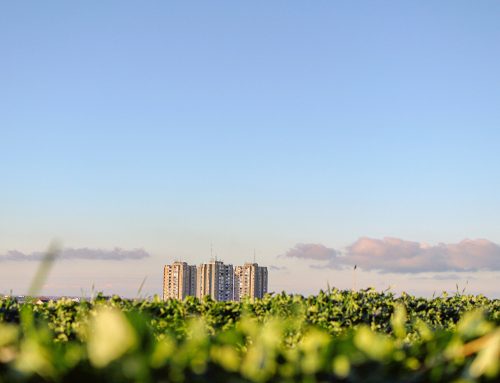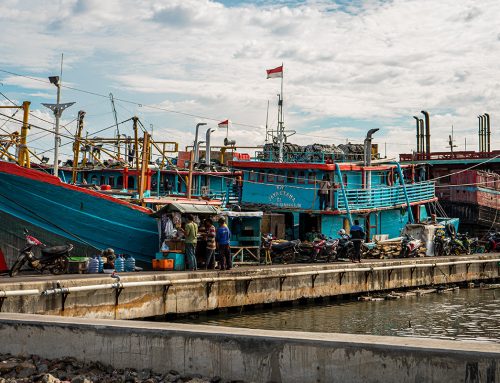Indonesia Policy Hub: A platform to identify challenges and implementable solutions to decarbonise the building sector in Indonesia

The next eight years to 2030 are critical for increasing efforts to support Indonesia’s target to achieve net-zero carbon emissions by 2060 or sooner. But there are functional obstacles standing in the way.
According to Sandra Pranoto, Senior Advisor, GBPN Indonesia, there is high engagement from government ministries and sub-national governments and a strong desire to get started but collaboration is a challenge.
“Everyone is very enthusiastic about working towards the net-zero emissions goal and we have done some fantastic work with key national ministries and sub-national governments,” she said.
“But there are gaps, overlaps and there is no easy way for the different stakeholders to come together and collaborate. GBPN has created the Indonesia Policy Hub to provide a platform that enables more systematic engagement with different ministries and levels of government and assists them in aligning their policies and initiatives. This is the key to avoiding gaps or overlaps and ensuring the approach is strategic and implementable.
“The Policy Hub also gives us the opportunity to brief various national ministries and seek information on decarbonisation opportunities available in the building sector in Indonesia.”
Breaking the silos around decarbonization regulations
Another key challenge in building decarbonisation efforts is institutional, according to Ratri Widyadari, National Strategic Advisor, GBPN Indonesia. Ms Widyadari is leading the work on the Policy Hub and says this issue is something the Policy Hub is well placed to support.
“Our work with the different government agencies has shown us that the Indonesian regulations are too top-down. A systematic engagement platform for dialogue on decarbonisation ideas and actions is non-existent,” Ms Widyadari said.
To address these issues, the Policy Hub team built four thematic areas to engage with the government across ministries and national and sub-national levels.
The four thematic areas are:
- Policy Opportunities
- Capacity Building and Technical Implementation
- Market Drivers
- Innovation.
“These thematic areas help us to identify key challenges and opportunities for green building policy implementation,” Ms Widyadari said.
“The thematic approach is already showing results. The approach was well-received at a recent Focus Group Discussion with key national agencies. The participants were able to identify where urgent action was needed with nearly 80% acknowledging that Policy Opportunities and Capacity Building as the most important of them.
“This is exactly what we hope to achieve with the Policy Hub; a platform where the stakeholders can identify opportunities and support needed to meet Indonesia’s green building vision.”
The strategic framework for the thematic areas was developed in partnership with Institute for Essential Services Reform (IESR), Jakarta, Indonesia.
Priority agendas clear up the path to urgent action
The thematic areas can be seen as priority agendas that form the heart and soul of the engagement process with the different stakeholders, says Ms Widyadari.
“Policy opportunities relate to policy reforms, that could be new regulations or revisions of existing ones to make them more aligned to the NDCs and net-zero targets,” said Ms Widyadari.
“Capacity Building and Technical Implementation helps to identify implementation gaps in existing regulations, or capacity building for new implementation. Sometimes executing agencies may need more guidelines from the national government, which is then identified and facilitated by the Policy Hub.
“Market drivers relate to incentive policies and alternative financing mechanisms for adoption of sustainable buildings. And finally, the fourth thematic area, Innovation relates to development of new technologies to support decarbonization initiatives in the building sector. How can sustainable building material be made more cost-effective, more affordable and easily accessible. How do we incentivize the business sector to innovate (through research and development) to develop the market.”

“Thank you to GBPN for giving the platform for discussion to push coherence and synergy among stakeholders. Moving forward, we need more robust collaboration and coordination so our approaches would no longer be siloed. By working together, we can take the elephant’s steps and accomplish so much more.”
– Wahyu Sujatmiko, Expert Counsel to the Director of Settlement and Housing Technical Development, Ministry of Public Works and People’s Housing (PUPR), speaking at a Policy Hub Focus Group Discussion
Energy-efficient buildings, Healthy Buildings – two sides of the same coin
The need for emission mitigation measures is critical not just for Indonesia’s zero-emission targets. According to Ms Pranoto, there is an awareness among government ministries that energy-efficient buildings are ultimately good for the people’s health, cost savings and the environment.
“There is agreement that one of the main solutions in achieving Indonesia’s Net Zero Emissions target and implementing Healthy Buildings is through policy alignment and implementation at both the national and local levels,” Ms Pranoto said.
“We need to see how we can support this through capacity building and technical implementation. We also need to disseminate knowledge and information on best practices, what works out there and what does not to improve and accelerate the development of sustainable buildings across Indonesia.”
| Project Name: Indonesia Policy Hub Phase 1 |
|
|---|---|
| Goal: | To enable more systematic engagement with different ministries and levels of government across Indonesia on decarbonisation opportunities available in the building sector. |
| Funded by: |  |
| Duration: | June 2021 – Dec 2022 (18 months) |
| Location: | Indonesia |
| Level of Government: | All Levels |
| Reports and Links: |
|
| Government Partner/s: | None |
| Research Partners: | Monash University, Indonesia
Department of Architecture, Monash University, Australia
|
| Implementation Partner/s: | None |
| Advocacy Allies: | None |
| GBPN Expert/s: | None |
| Related Project: | Policy Hub – HIDUP 2023 |






